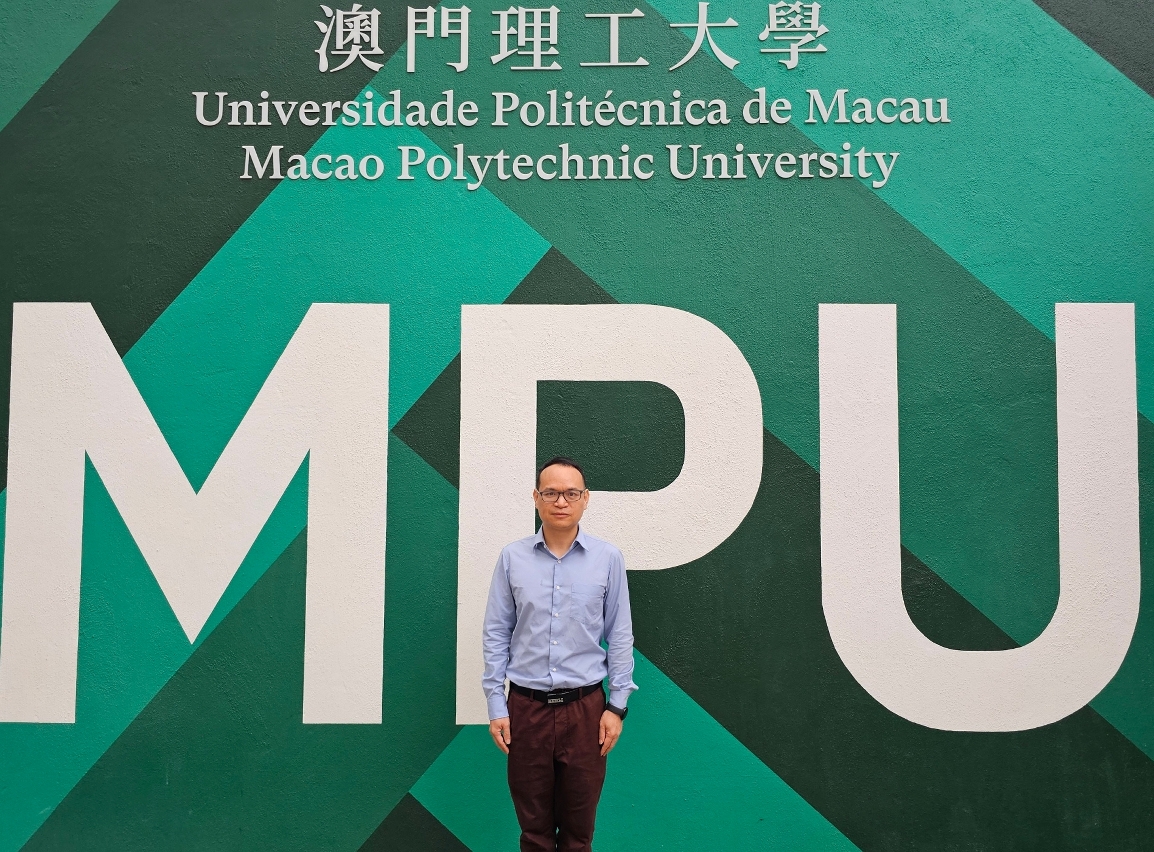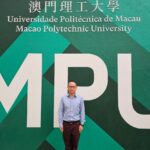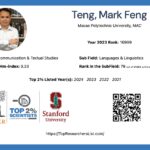 MPU Associate Professor Mark Teng Honoured as “World's Top 2% Scientist” in the Field of Languages & Linguistics.
MPU Associate Professor Mark Teng Honoured as “World's Top 2% Scientist” in the Field of Languages & Linguistics.
Stanford University released the “World’s Top 2% Scientists” annual impact rankings. Associate Professor Mark Teng of the Faculty of Languages and Translation (FLT) at Macao Polytechnic University (MPU) has been selected for the fourth consecutive year. In the field of “Language and Linguistics,” he ranks 4th among 35 scholars from Chinese higher education institutions (including Hong Kong, Macao, and Taiwan) with comprehensive influence in the top 2% globally. He is the only scholar from Macao to be listed in this field, ranking 79th among 21,383 scholars worldwide.
The “World’s Top 2% Scientists” lists for “Lifetime Scientific Impact Rankings” and “Annual Scientific Impact” are a collaboration between Professor John P.A. Ioannidis’ team at Stanford University and the information analytics company Elsevier. The lists use six composite indicators including total paper citations, individual h-index, co-author-adjusted Hm index, citations of solo, first, or last author articles, covering 22 fields and 174 subfields. Based on “Lifetime Impact” and “Annual Impact,” scientists in the top 2% globally are selected from nearly 7 million scholars, recognizing their significant research contributions.
Mark Teng focuses on research in computer-assisted second language vocabulary and writing. He has published over 100 research papers in mainstream applied linguistics SSCI and Scopus-indexed journals, authored 10 publications, and led projects funded by the National Social Science Fund. MPU will continue to leverage the rich resources and cultural background of Macao and the Greater Bay Area to inspire more scholars to excel in their respective fields and contribute to research development.



